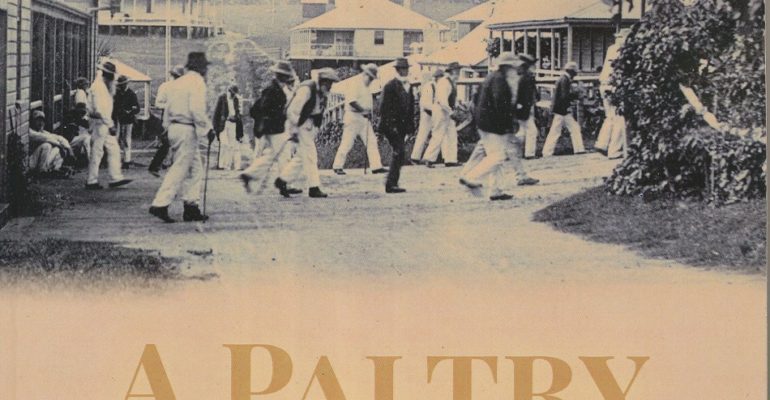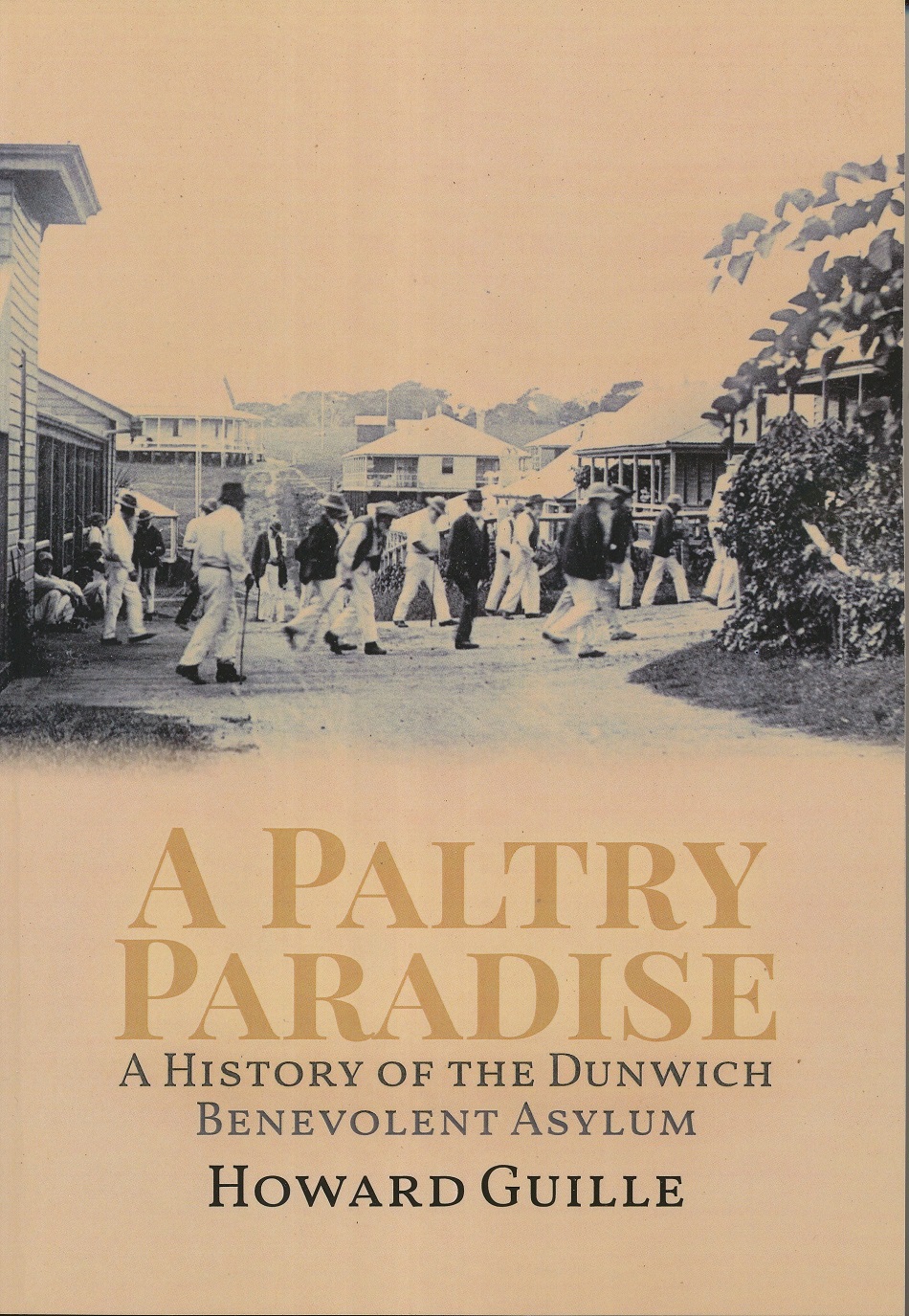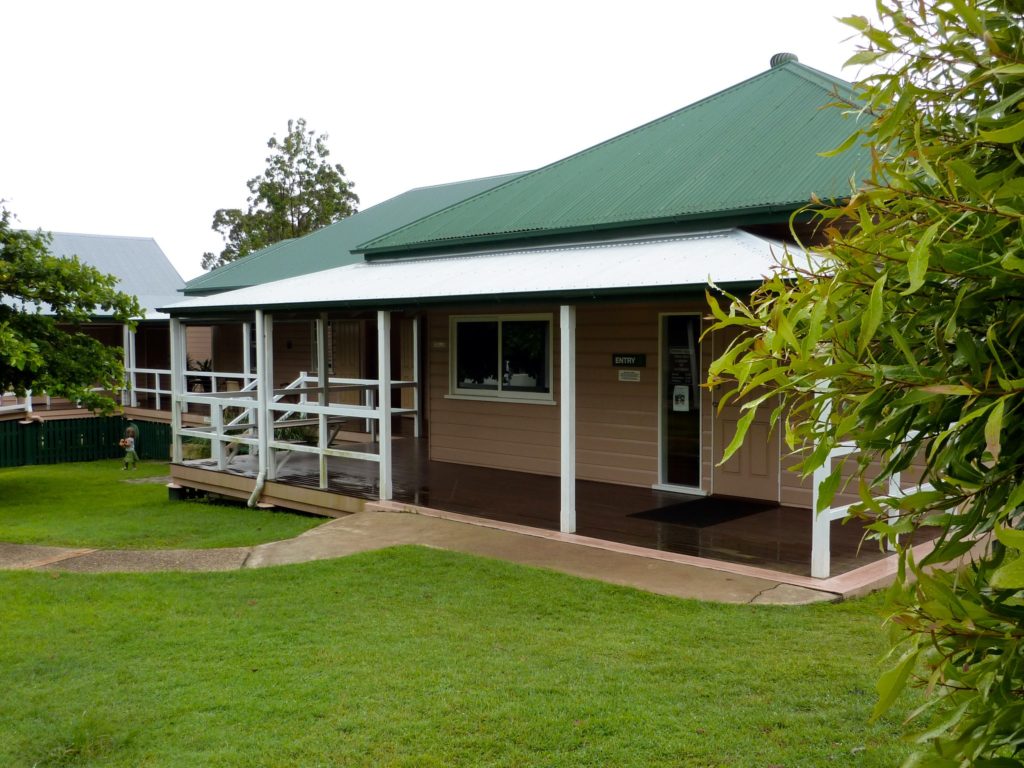
A new book ‘Paltry Paradise; a History of the Dunwich Benevolent Asylum’ will be launched at the North Stradbroke Island Museum on Minjerribah on Friday 13 December. This is a comprehensive social, economic and political account of how Queensland provided welfare at what was. for some time, the state’s largest public institution.

‘Paltry Paradise: a History of the Dunwich Benevolent Asylum’
At the turn of the nineteen and twentieth centuries one in four of all men in Queensland over 65 years were at Dunwich. They were inmates of the Dunwich Benevolent Asylum which was the largest public institution in Queensland at the time.
Over its 80 years of operation on North Stradbroke Island (Minjerribah) the Asylum held 21,000 inmates. The vast majority were aged. The phrase ‘off to Dunwich’ conveyed approaching senility, if not death.
There were many remarkable people as inmates – from a Deputy Premier to a Pacific Islander rescued in the middle of the Pacific Ocean. And, for a while, there were people paying as private inmates for rehabilitation from drink.
Howard Guille, author of the book, says the title ‘Paltry Paradise’ is purposely ambivalent. For some politicians and journalists, it was an arcadia; a Moreton Bay Shangri-La. But there were dull routines, poor food, putrid fish and forced to be outside every day whether in burning sun or freezing winds. For some returned WW1 soldiers it was a place where they were locked up as alcoholics without treatment for the ‘shell shock’ that afflicted them.
Aboriginal workers and the Dunwich Benevolent Asylum
For a time this was Queensland’s largest public institution. A major part of the remarkable history is how the Asylum became dependent on the Aboriginal people of Quandamooka Country.
The Asylum was perennially under-funded. The Asylum became dependent on Aboriginal workers; yet this also made Aboriginal people reliant on the Asylum.
The Aboriginal workers of the Asylum, supported by trade unions, used industrial actions to achieve award wages and equal pay in 1944. They were the first group of Aboriginal people to do so in Australia — more than two decades before anywhere else.
The Dunwich Benevolent Asylum was a product of the social and political ethos of the second half of the nineteenth century and the first half of the twentieth century. It was thought that the poor should be ‘deserving’; they should work for their keep and should be grateful. Such an ethos seems to be back in fashion.
The history of the Asylum – for 80 years the public institution for Queensland’s aged – reverberates in the recent interim report of the Aged Care Royal Commission. The foreword of the report says aged care services are ‘Left out of sight and out of mind‘. They are, among other things, ‘underfunded.’ Just like the Dunwich Benevolent Asylum!

This important part of Queensland’s history will be launched at the North Stradbroke Island Museum on Minjerribah on Friday 13 December from 5:00pm to 7:00pm.
The Museum is in Dunwich (Goompi) located at 15-17 Welsby Street, Dunwich.
If you are thinking of popping over from the mainland, the Museum is about 600 metres walk from either the Stradbroke Flyer terminal or the Sealink terminal. Water taxis returning to the mainland depart Dunwich for Cleveland hourly until 7:55pm.
If you wish to attend the book launch, RSVP to info@stradbrokemuseum.com.au
For further information about this book contact Howard Guille 0419 673 092 or Elisabeth Gondwe (07) 3409 9699.

Redlands2030 – 9 December 2019
Please note: Offensive or off-topic comments will be deleted. If offended by any published comment please email thereporter@redlands2030.net